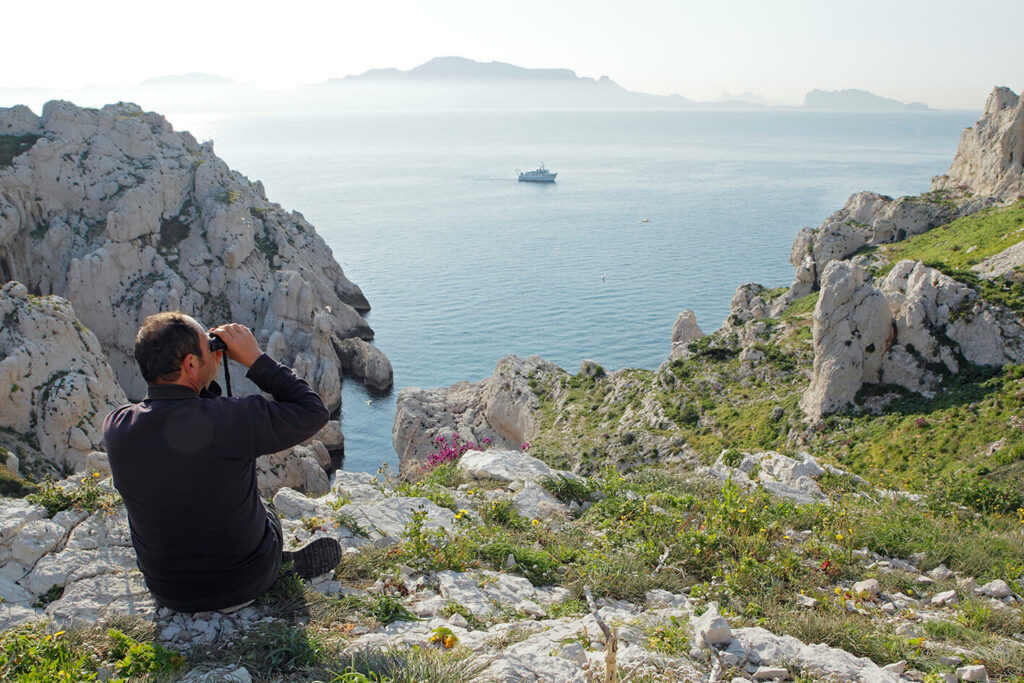Rising waters, changes in biodiversity, erosion: the Mediterranean coastline is already facing the consequences of global warming. According to ONERC (the National Observatory for Climate Change), the average sea level has risen by 18 cm between 1870 and 2000, including 6 cm between 1980 and 2000. What will happen in 20 or 50 years? With the ADEN-Med and PHAROS projects, the University of Toulon, in the south of France, aims to provide a diagnosis, a long-term vision, and innovative decision-making tools. A transdisciplinary and international scientific effort, focusing on Egypt and Djibouti.
By Audrey Savournin, journalist.

The column "A Fragile World" is dedicated this July 3rd to the risks associated with climate change in the Mediterranean and the scientific projects developed to address them. It is freely available for the 22 countries around the Mediterranean and in 11 languages thanks to our partner the University of Toulon.
Monitoring the coastline to better prevent risks related to climate change and developing innovative real-time decision-making tools. This is the research focus of the scientific projects ADEN-Med (Adaptability to Climate Events and Natural Risks) and PHAROS, led by the interdisciplinary MEDD (Sea Environment and Sustainable Development) hub of the University of Toulon (UTLN) in the south of France. This hub involves around a hundred researchers from eleven laboratories. Another common point is that both projects are winners of calls from the Région Sud: MedClimat for ADEN-Med, awarded two years ago and soon coming to an end; Seas and Oceans 2024 for PHAROS, validated last November for two years. However, the partners and studied areas differ. ADEN-Med aims to anticipate the impact of extreme climate events on Mediterranean and Djiboutian coastal areas, while PHAROS looks towards Egypt, particularly with the University of Alexandria – and the Barcelona Supercomputing Center, to analyze coastal erosion more specifically.
Create an International Interconnected Platform
It was in Alexandria that UTLN gathered experts from different countries along the Mediterranean-Red Sea axis last April to discuss the multiple challenges that stakeholders will face. Because climate change will inevitably impact the environment, as well as the marine economy and coastal urban planning. French, Italian, Greek, Cretan, Tunisian, and Spanish scientists worked for two days on structuring the Horizon Europe project. In the presence of prominent figures such as the Vice-Governor of Alexandria, Amira Salah, the Consul General of France in Alexandria, Lina Blin, and the Egyptian Deputy Minister of Environment, Samed Riad. Drawing on their shared experience with ADEN-Med and PHAROS, they can indeed apply for European funding of 6 million euros. To "create a common interconnected platform for about fifteen countries to collect data,” specifies Céline Barbier, head of the Prospecting and Engineering department at UTLN project management. ADEN-Med and PHAROS are the first building blocks.
Anticipate and Alert
For now, the director of the MEDD hub, Jacques Piazzola, believes there is much to learn from Djibouti: "We are advancing with the idea that we can project certain characteristics of the Djiboutian marine and coastal environment onto the situation in the south of France around 2050-2070. We do not know precisely what type of change will occur, nor the magnitude within 10 or 20 years; it is still quite uncertain. But on average, sea level has risen by 10 cm in 30 years. The goal is to anticipate the tropicalization of the Mediterranean - which is underway - and to be able to alert before extreme events, support coastal management, and then manage costs. Having playgrounds like Djibouti, where we can gather other weather-oceanic data, is fundamental. Data is the lifeblood of the operation.
In Situ Sensors
Without observation, without data collection, there can be no modeling, no AI. Hence the desire to pool the elements collected by different countries and partners. And to install sensors that will then be managed by the partners themselves, with tools and access to data at their disposal. "UTLN has data; we can rely on Argos buoys, satellites, but nothing replaces in situ data,” specifies Jacques Piazzola. Two witness sites have therefore been defined in Djibouti as part of ADEN-Med, while discussions are ongoing with Alexandria for PHAROS. "And we also rely on participatory sciences, on the populations, the people who know the sites,” he continues. High-resolution models are still very imprecise; we need partnerships with local scientists to refine them; they are irreplaceable. Erosion, for example, is not caused only by waves. It is also linked to actions taken on the coastline.
Cooperation will therefore logically be at the heart of Horizon Europe, which aims to cross-reference in situ and satellite data. To ultimately have "trans-Mediterranean data,” summarizes Céline Barbier, "with Egypt, Djibouti, our Greek, Italian, and Tunisian partners, and the HTM-NET sensor network, which notably measures the level and pressure of water in about twenty Provençal ports.” A simulation and alert tool using AI, which will be open source.
Bridging Policymakers and Scientists
A fundamental element for projects that converge towards assisting decision-makers. "Policymakers are often at a loss when faced with these issues,” notes Jacques Piazzola. "They do not really know what we do in laboratories, and rather than thinking of scientists, they will pay for studies conducted by firms that do not necessarily have the expertise. We need to establish closer relationships so that policymakers have the reflex to turn to the knowledgeable.” Knowledge and making it known.

Cover photo: The Mediterranean coastline is already facing the consequences of global warming © Francesco Ungaro - Pexels
